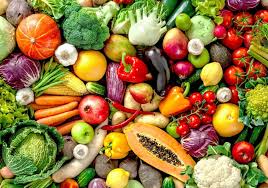
A raw food diet consists of mostly raw or uncooked foods. It can include fruits, vegetables, seeds, sprouts, grains, beans, and more. Raw foods are considered to be “alive”, as opposed to “dead”, and add an unparalleled amount of life-giving nutrients. This differs from eating cooked and processed foods that can taste great but offer little nutritional value. A raw food diet allows your body to receive important nutritional properties that help promote healthy bodily functions.
Who are the “Raw-foodists”?
“Raw-foodists” (also called “Rawists”) thrive on live food energy, consuming a diet of mostly uncooked whole plant foods that make up at least 75 percent of their diet. Although, some purists believe your entire diet must consist of raw foods. Popular raw-foodists include raw chef Juliano, actress Demi Moore, and raw food author, David Wolfe. This lifestyle is largely about breaking free from an addiction to cooked and processed foods. Jumping into a raw-food diet is only recommended once you do some research and consult with a nutritionist, but even a few uncooked meals per week can improve your overall health and increase your energy.
Why go Raw?
You will often hear about going “raw” in association with weight loss, but there are so many additional health benefits to adopting a raw-food diet. Raw foods aid your digestive system, because they are easy for the body to process. Studies have proven living foods can improve your overall health. A raw food diet can naturally resolve health issues including allergies, Candida, low energy, high cholesterol, digestive issues, and skin disorders. Research also confirms what I know personally, a mostly raw food diet that includes whole organic foods can help prevent cancer. The root cause of all inflammation and disease in the body is an acidic environment. Eating meat protein, white bread, and sugar all lead to acidity in the body – but a raw-food diet alkalizes the body to help protect you from disease. Because it is low in trans and saturated fats, a raw-food diet has also been linked to the reduction of heart disease and diabetes.
What’s wrong with cooked foods?
Food begins to lose its essential nutrients (ie. vitamins, minerals, amino acids, oxygen) and live enzymes when heat is applied. Raw foodists label it “dead food” because cooking can rob food of up to 85 percent of its nutritional value. Because it is harder to digest and puts a strain on your digestive system, it makes you feel heavy and less energetic. Essentially, heat changes the natural properties of food and some believe cooked food has lost its life force (or chi) after its live enzymes are destroyed.
Try a raw food diet and see if you can tell a difference! Incorporating sprouts into your meal or salad is a quick way to add plant protein. Even if you have a busy schedule, you can find easy to prepare whole and raw-food recipes at your local health food store and natural food markets. Just remember, going raw is a learning experience that requires patience and listening to your body’s needs.
